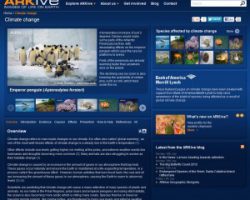Published Articles
Inspiring future generations (and feeding them)
People will fight passionately for medical advances, and indeed science has done a huge amout to save lives and reduce suffering caused by health problems. But the point was made at UK PlantSci 2013 that, ultimately, this is only valuable if we can feed people. I don’t think there is a single delegate at PlantSci who doesn’t have concerns about lack of funding for agricultural research, but there was an uplifiting session about tackling some of the problems facing plant science. I don’t mean climate change and population growth, but lack of skills, funding and understanding. If people don’t understand what plant scientists do or what they achieve, how can they be expected to value plant science? The UK Plant Sciences Federation was founded so we can work together on this kind of issue, and education is very high up the agenda. School children learn lots of facts, but…
No single answer – messages from PlantSci
This week I’m lucky enough to be at UK PlantSci 2013 in Dundee – the 2nd conference of the UK Plant Sciences Federation. The conference opened this morning with a keynote talk from Professor Charles Godfray, who spoke very convincingly about the need for food production to become radically more sustainable. At the moment, our food production system is compromising our future capacity to grow food. Professor Godfray, who is Director of the Oxford Martin Programme on the Future of Food at the University of Oxford, explained that we have to address the challenges of feeding 10 billion people in a new way. Not only will we have more people to feed, but also they will be richer. They will expect more varied diets, which require more resources to produce. Population growth and changing diets were a focus of his talk and he believes that these are both important…
MPs’ thoughts on academic career paths
From a potential ban on neonicotinoids to the importance of the EU, there were some provocative questions at last week’s Voice of the Future. There were many times when I had my preconceptions challenged by the MPs’ answers, and many issues I hadn’t stopped to consider. This Storify (below) sums up the debate brilliantly, and you can watch the entire event here, but I’ve taken the opportunity to share some of my thoughts, and look forward to your comments. Unsurprisingly, a major issue raised by young people was the career structure in academic science. Unlike most commercial settings, aspiring academics must do multiple short-term contracts after which many will never get permanent jobs in research. Universities and Science Minister David Willetts MP was keen to explain that there are reasons for the high number of PhD students relative to senior staff, including that the structure shouldn’t be too top…
In praise of apprenticeships
by Rebecca Nesbit I was interested to hear an interviewee on the Today programme worried about the reluctance amongst many parents and schools to recognise the true value of apprenticeships. As someone who graduated prior to top-up fees, I often ask myself ‘if I was 18 now, would university still be the right thing?’, so I was curious to learn more about what apprenticeships are on offer in the life science sector. The range of biological science that apprenticeships cover includes environmental sciences, nanotechnology, genetics and the immune system. Opportunities include laboratory technicians, working on everything from environmental and medical science to fermentation. The ‘on the job’ training for these apprentices may include collecting and analysing samples, preparing cultures or specimens, managing laboratory supplies and equipment, setting up experiments, and recording data. Apprenticeships are clearly an excellent way to learn the practical skills employers need and the attitude needed…
Is panda PR a good idea?
by Rebecca Nesbit, Press Officer, Society of Biology Panda conservation is not ‘greenwash’ read the headline of BBC Nature’s thought-provoking write-up of the Biology Week debate ‘should we save the panda’. This referred to the evening’s extensive discussion about the use (and misuse) of pandas in conservation PR. Whether or not you think it is important to make popular animals a conservation priority, the belief that pandas attract more conservation resources than they use is a common reason for voting that we should indeed save the panda. As poster boys, charismatic species can attract money and increase the profile of conservation (and conservation organisations). It is surprisingly complicated to determine whether, overall, the panda brings in more money for conservation than it uses. Zoos raise money for conservation in the wild, but would people who paid for entry into a zoo still come if there were no pandas to…

Podcast: should we save the panda?
by Rebecca Nesbit With just five days to go until the Biology Week debate, ‘Do we need pandas? Choosing which species to save’, the votes on the Society of Biology website poll are swinging in favour of the panda. To help me decide which way to vote, I produced this podcast in which I interview three conservationists about conservation and the choices we make – everything from controlling non-native species to protecting them. I will be live tweeting as @Society_Biology from the event on Monday night using the hashtag #pandadebate and will be taking questions to put to the panel. If you have any questions in advance, please add them to the comments below. I’d also be very interested to hear your views on any of the issues I raised in the podcast, and those debated under my last blog post. My podcast guests were: Mark Avery, Zara Gladman and Matthew Hatchwell
Flying ant day is back
Submit your flying ant sightings! After the excitement of flying ant day, which happened in the last week of July in most of the UK, there has been a sudden encore and swarms of flying ants were sighted around the UK on 8th August. In some cases at least it appears that the same nests have produced a second batch of males and new queens. Thank you to everyone who has filled in our flying ant survey – we have had over 5000 records so far which will be fascinating data for analysis. Even if you submitted sightings previously your results from this week will be just as valuable as those from July. We will present the results in October during Biology Week. This sound track to this quick video explains about flying ants, and my last blog post answers some more questions.
Is it a bird, is it a plane?
Sometimes it isn’t ants that alert people to flying ant day, but raucous flocks of gulls. Flying ant day occurs once a year, around now, when winged black garden ants emerge in their millions ready to mate. This is quite a spectacle, partly because of the birds it attracts. Thousands of gulls often loudly make their presence known where they aren’t normally present in large numbers. Often, they are nowhere near the sea. In fact, many of our species of ‘seagull’ will spend lots of time inland. The gulls making the most of flying ant day include the herring gull and the black-headed gull. Black-headed gulls are smaller and daintier than herring gulls, and are the most common gull species seen inland. In the summer it is recognisable by its black head (actually chocolate brown) but it loses the colour over the winter. Like most gulls, black-headed gulls live…

Bring biology to life with ARKive
Guest blog by Lauren Pascoe from Wildscreen Whether you want to explore the wonders of the natural or are in need of some inspiration for this years’ Society of Biology photography competition, ARKive has it covered. ARKive is an initiative of Wildscreen, a not-for-profit organisation whose mission is to inspire the global community to discover, value and protect the natural world using the power of wildlife imagery. With over 15,000 fascinating species fact-files and over 100,000 films and photos from the world’s best wildlife photographers and filmmakers, gathered together and freely available online at www.arkive.org, we hope to shine a spotlight on the world’s biodiversity. Like the Society of Biology and its ‘How Biology Can Save the World’ photography competition, we believe that imagery is powerful and effective means of raising environmental awareness. Amazing and awe-inspiring wildlife films and photos can be instrumental in igniting that…

Why become a Chartered Scientist?
The Society of Biology has recently been awarded the 27th licence to offer Chartered Scientist by the Science Council, in addition to our current Chartered Biologist Status. Although for a lot of our members bioscience is their main interest, their work often crosses into other areas of science, and Chartered Scientist status will benefit their recognition in pan-science roles. Professionally recognising those who work in the life sciences at a high level, Chartered Status helps public confidence in professionals and gives employers confidence in their employees. Chartered Status is open to Members (MSB) and Fellows (FSB) of the Society of Biology with a Masters level qualification or equivalent, who can also demonstrate the required professional competences and a commitment to Continuing Professional Development (CPD). The world in which all professionals practice is changing, and the biosciences are no exception. Professionalism is continually strived for but encompasses much more than just a job…
